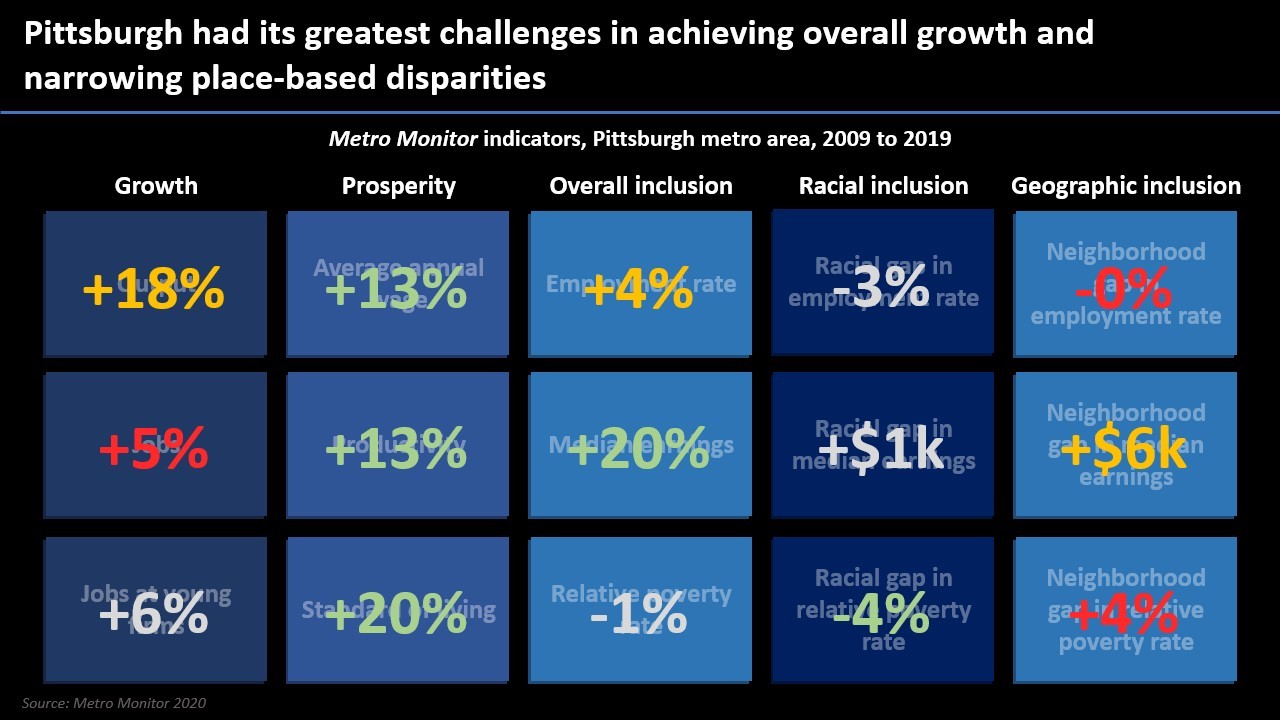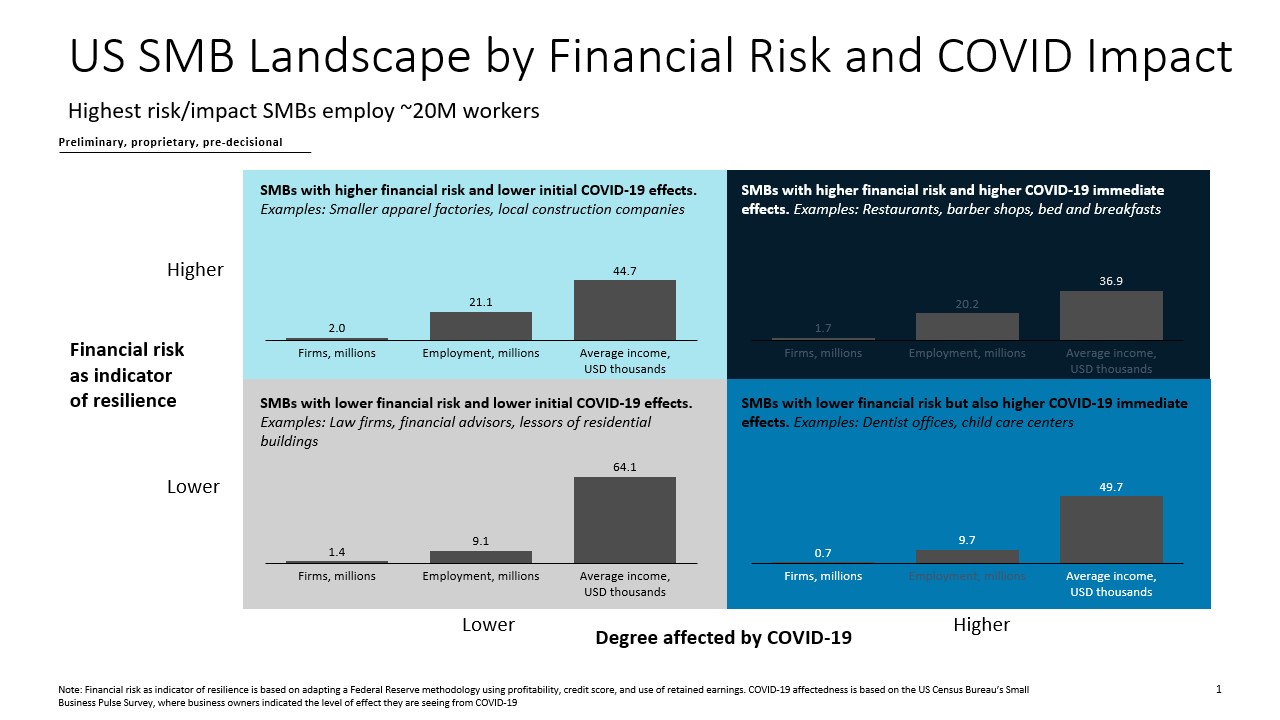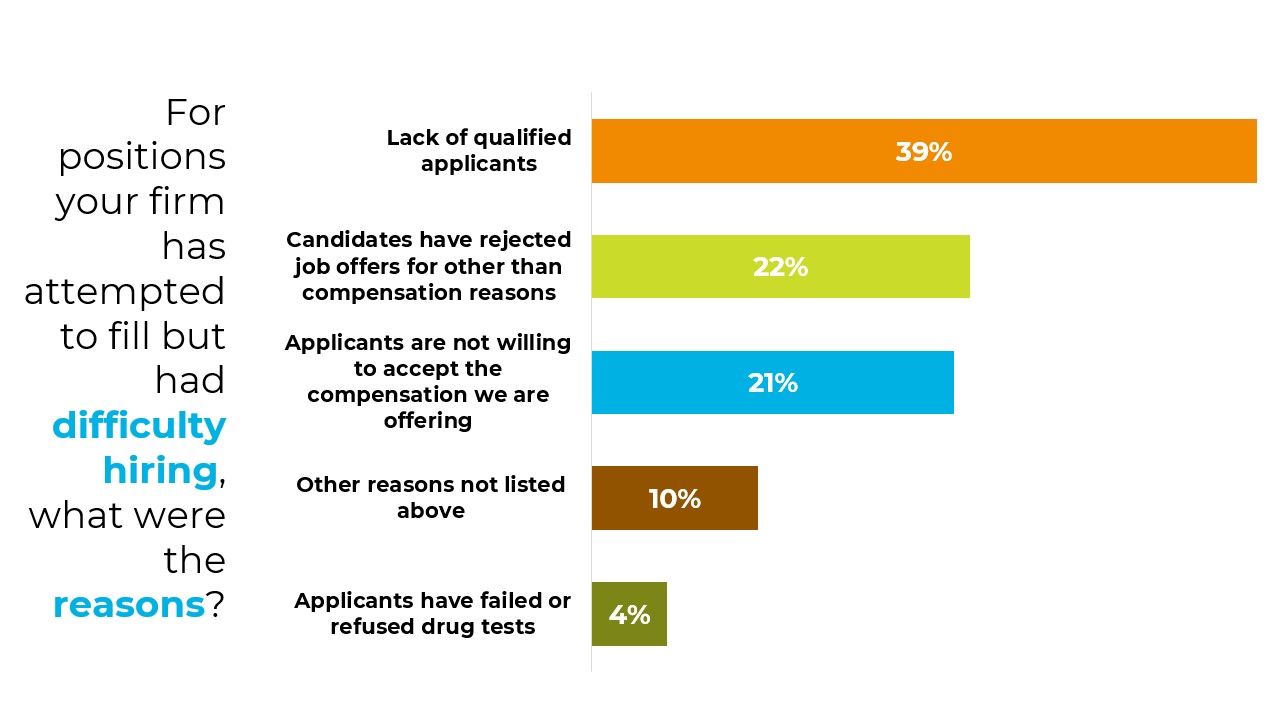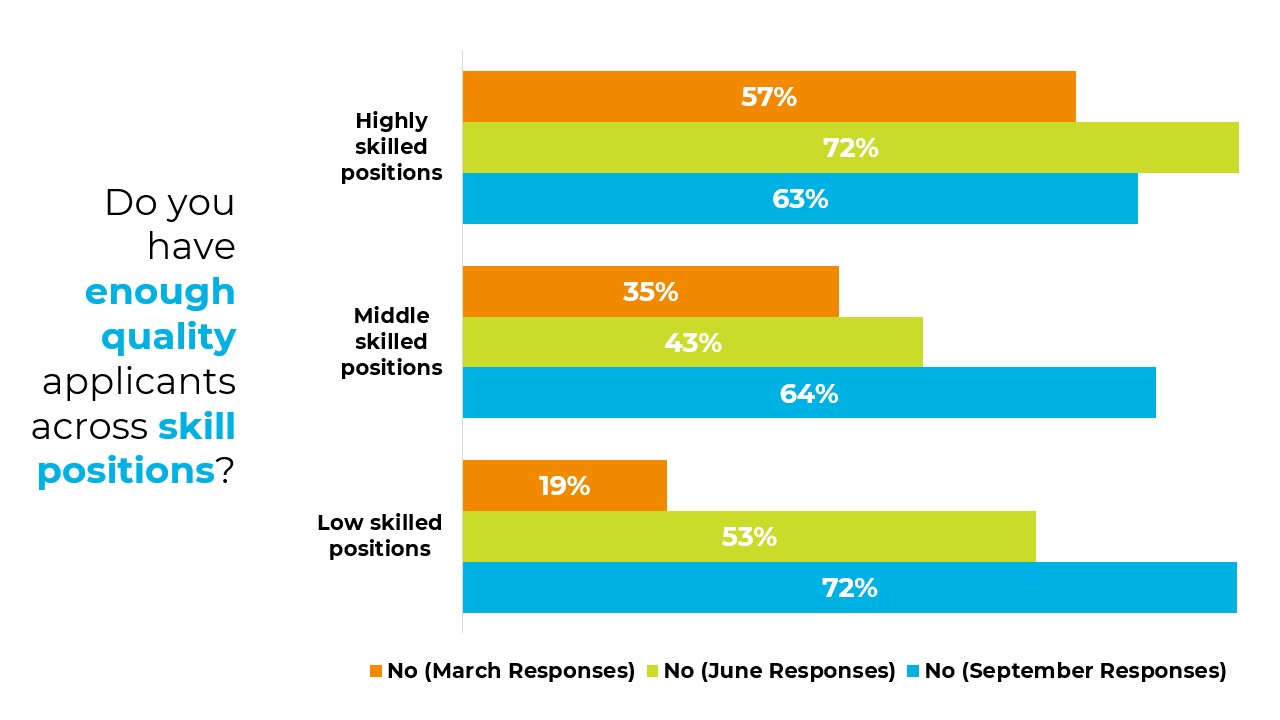The challenges ahead for Southwestern Pennsylvania are many — some familiar, others emerging and evolving as the Covid-19 pandemic continues.
The Institute of Politics 24th Annual Elected Officials Retreat itself mixed the familiar and the new. The highly regarded, long-running event took place virtually for the first time — its 2020 edition canceled amidst the pandemic. Shifting the event to an online, video-meeting format, Institute leaders convened elected officials, public agency leaders and nonprofit and business decision-makers on Nov. 18, 2021.
Institute Director Samantha Balbier said attendance was one of the highest ever. More than 200 participants gathered for discussions on the theme of Building Regional Competitiveness and Economic Opportunities in Southwestern Pennsylvania.
“The level of participation that we have here today does not happen overnight,” she said, noting the Institute’s history of building trust and collaboration. “We do this because we know that innovation is created through the exchange of diverse ideas, and progress is achieved by striving toward common ground.”
Agenda
Click here to see the full schedule for the 2021 Elected Officials Retreat.
Retreat Materials
The 2021 briefing book can be downloaded here.
Coleman Award Winners
Please note that the titles and organizations listed reflect the position held by the awardee when he/she received the award.
- Lisa A. Scales, J.D., President and CEO, Greater Pittsburgh Community Food Bank
- John M. Wilds, Ph.D., SPHR, Assistant Vice Chancellor for Community Relations, University of Pittsburgh
Program Highlights
Fostering Opportunity for All: Envisioning a Robust Regional Economy
Alan Berube, senior fellow and deputy director, Metropolitan Policy Program, The Brookings Institution
Alan Berube presented findings from The Brookings Institution’s annual “Metro Monitor,” which measures progress categories including growth, prosperity, and inclusion in U.S. metro areas. Within those categories are 15 indicators, such as average annual wage, standard of living and racial gap in employment.
Overall progress in the Pittsburgh metro region lagged, and the region also registered negative progress in indicators such as racial gaps in relative poverty and employment rates.
Despite being a slower-growing economy than most, the Pittsburgh region showed higher progress in average annual wage, productivity and standard of living. Yet the story shows the need for creating an economy that fosters opportunities for all Southwestern Pennsylvania residents and communities, Berube said.
“This isn’t a new topic, I know, but it is one that I think has gained focus and urgency as we emerge from the pandemic,” Berube said.

Key to realizing maximum benefits and inclusiveness, Berube said, are:
- Conveners, who work on problem definition, goal setting, and aligning organizations around those goals using research and consensus-building.
- Connectors, who are the intermediaries acting on priorities set by conveners, connecting firms to service providers.
- Implementers, who intervene in regional systems by providing services and know-how in one or more market pillars.
Regional Voices of Southwestern Pennsylvania on Economic Opportunity
Panel discussion
Moderator Jen Giovannitti, president and trustee, Claude Worthington Benedum Foundation
Panelists:
Dennis Davin, secretary, Pennsylvania Department of Community and Economic Development
Gene Yaw, member, Pennsylvania Senate; Chair, Pennsylvania Senate Environmental Resources and Energy Committee; vice chair, Pennsylvania Senate Judiciary Committee; chair, Board of Directors, Center for Rural Pennsylvania
Mark Anthony Thomas, president, Pittsburgh Regional Alliance
Gene Yaw said Pennsylvania is already well-positioned to develop its economy because of its strength in the energy sector.
He said a critical need is the state and the region getting this messaging out.
“I sometimes get the feeling that Pennsylvania does not recognize where we stand on the world stage as far as energy. We have probably the most diverse energy portfolio of any state in the United States.”
Mark Anthony Thomas said the region’s assets, including health care, life sciences, the creative economy, robotics, AI and manufacturing infrastructure, need to be broadly known outside the region.
Broadband access is vital, said Dennis Davin, and its importance only became starker in the pandemic.
“We have places in Pennsylvania — and not just the Northern Tier — where people are taking their kids to the nearby McDonalds so they can do their homework. That can’t happen.”
Davin praised the region’s foundations, noting the $100 million grant to the University of Pittsburgh from the Richard King Mellon Foundation designed to support a new biomanufacturing facility called BioForge.
Building an Inclusive Post-pandemic Economy
Mike Kerlin, partner, McKinsey & Company
The impact of the pandemic on jobs and the workforce has created several new challenges — including hiring and retaining workers — and continued to highlight pre-pandemic problems such as racial disparities in income and job opportunities.
During the pandemic, 56 million jobs were made vulnerable in the U.S., said Mike Kerlin. Childcare challenges and fear of Covid-19 make workers reluctant or unable to join the workforce, and less personal spending affects some businesses’ viability.
Kerlin presented statistics showing financial risk and initial or immediate Covid-19 risk to small and mid-sized businesses.

“What you can see there is that the most vulnerable jobs were in the lowest paying, least education required sectors of the economy,” Kerlin said.
However, he said that many economists believe that shifts in the workforce offer opportunities to create compelling new jobs through better pay, benefits, and advancement opportunities.
The Post-pandemic Southwestern Pennsylvania Economy
Vera Krekanova, chief strategist and research officer, Allegheny Conference on Community Development
Vera Krekanova discussed big-picture comparisons between the region and the U.S. and survey data on what businesses and workers see as barriers to hiring and employment.
“The overwhelming consensus among regional employers across sectors and sizes is the talent issue is the top driver or, in this case, top deterrent of their economic success,” she said.
Top reasons cited by businesses for not filling positions:
- Lack of qualified applicants, 39%.
- Candidates rejecting offers for other than compensation reasons, 22%.
- Applicants not willing to accept the compensation we are offering, 21%.

Top reasons cited by the nearly one-quarter of worker respondents looking to leave their jobs:
- Feeling overworked, underappreciated, burned out, 48%.
- Bad culture and relationships, toxic work environment, 18%.
- Unsatisfactory benefits and pay, 15%.

In Pennsylvania, the unemployment rate continues to trend above the national average, said Krekanova.
“The question has been — ‘why?’ The more interesting question for me is ‘why still?’”
On the Ground Models of Economic Opportunity
Moderator, Carissa Schively Slotterback, dean, University of Pittsburgh Graduate School of Public and International Affairs
AJ Calhoun, senior manager, data and evaluation, Leading on Opportunity
Brandon Dennison, CEO, Coalfield Development
AJ Calhoun and Brandon Dennison shared practical strategies they employed to help nurture and create economic opportunity in both urban and rural areas.
In the Charlotte-Mecklenburg region of North Carolina, Leading on Opportunity continues to address uneven access to economic mobility across the region after convening 20 community leaders to study the underlying issues.
After two years of study, the Opportunity Task Force Report defined more than 20 strategies and more than 90 specific recommendations in areas including child and family stability, early care and education and college and career readiness.
The efforts led to funding and building affordable housing units through private and public money. The group will next focus on college and career readiness.
In southern West Virginia, Dennison follows a social entrepreneurship model to build economic opportunity.
It’s a “blending the efficiency of the for-profit sector with the compassion of the nonprofit sector,” he said.
His organization, Coalfield Development, has started more than 50 new businesses in such areas as recycling, reuse and sustainable agriculture. These businesses provide workers with on-the-job training and development opportunities.
“It creates hope in a real and tangible way,” he said.
Regional Voices of Southwestern Pennsylvania on Workforce and Education
Moderator, Stan Thompson, senior program director, education, The Heinz Endowments; executive director, Pittsburgh Readiness Institute
Camera Bartolotta, member, Pennsylvania Senate; chair, Pennsylvania Senate Labor and Industry Committee
Quintin Bullock, president, Community College of Allegheny County
Lindsey Williams, member, Pennsylvania Senate; Democratic Chair, Pennsylvania Senate Education Committee
Issues surrounding education landed at the forefront of pandemic challenges. The Institute of Politics investigated the issues in K-12 education in its recent publication “Learning from Crisis,” from its education policy committee, led by Stan Thompson.
The report used “the disruption caused by Covid-19 to consider over-arching policies and practices that support flexible high-performing learning environments that have the potential to improve learning outcomes and equity in education,” said Thompson.
Lindsey Williams noted that the pandemic exacerbated existing inequities among K-12 schools.
“Some schools were up and ready with virtual learning within days; other schools took weeks,” she said. Some students didn’t have immediate access to laptops or tablet devices or even broadband needed to connect them to their schools and struggled to keep up with coursework.
Camera Bartolotta said that while most individuals lost their jobs through no fault of their own, many had difficulty rejoining the workforce due to childcare challenges or working in particularly vulnerable industries. However, she also said that extended unemployment benefits played a part in people reevaluating their participation in the workforce.
Bartolotta, along with Thompson, leads the IOP’s task force on equity and dual enrollment and pre-apprenticeship programming. The task force plans to release a report with recommendations early in 2022. The five focus areas are equity goals in public reporting, finance, program integrity and credit transfer, course access and availability, and instructor capacity and navigational supports.
Quintin Bullock emphasized the importance of the Community College of Allegheny County (CCAC) as key to helping to train job seekers.
The work includes forecasting the hard and essential skills employers will need and redesigning curricula to meet those demands.
The Geography of Regional Economic Development
Patrick Gallagher, chancellor of the University of Pittsburgh
Introduction by Mark A. Nordenberg, chair, Institute of Politics; director, Dick Thornburgh Forum for Law and Public Policy; chancellor emeritus, University of Pittsburgh
Pitt Chancellor Patrick Gallagher closed the retreat with a discussion of the region’s challenges as it strives to be a leader of workforce development, technological innovation and industrial capacity.
He emphasized that “competition is now global, and that’s not going to change.”
Gallagher said that the U.S. has traditionally dominated research and development, which has affected the national approach. For example, long-standing assumptions include:
- Top talent in the world would come to the U.S.
- U.S companies would do most of their research and innovation within the United States.
- Other countries are only effective if they steal U.S. technology or the U.S. licenses it to them.
“These assumptions are no longer valid,” Gallagher said.
But “while the competition may be global,” Gallagher said, “the conditions that a company needs are in fact very local. Regions are trying to play a key role in assembling the assets, whether that’s talent or key facilities.”
Regional strategy also must consider equity and inclusion and create livable communities and more opportunities in a sustainable way. One of the most challenging issues is the workforce, Gallagher said.
“Access to workers, having great locations for workers to live and work, is absolutely driving business decisions,” he said.
But regional players are not getting clarity on national policy as they compete for global talent, he said.
“The U.S. response right now is unformed, in my view, and it’s quite inconsistent,” Gallagher said. “We see incentives and restrictions that do not consistently go across categories. One interesting example: The number of student visas issued to foreign students … has nothing to do with the number of work visas we issue for them to stay in-country. And yet we worry about the flow from education to work.”
The education market itself is being disrupted. The number of U.S. high school students seeking college degrees had its largest two-year decline in at least 50 years, Gallagher said. Among the students who do go to college, first-time enrollment in community college is down 21%. Conversely, flagship universities across the country, such as the University of Pittsburgh, have seen unprecedented demand.
“States, which have the largest responsibility for job training and education programs, are going to have to really think strategically long-term,” Gallagher said.
“And this is happening at a time when we’re focused more on short-term, hot-button or wedge issues in education.”
Mark A. Nordenberg closed the retreat, saying, “The quote from Henry Ford printed on the front cover of today’s program states, ‘If everyone is moving forward together, then success takes care of itself.’
Said Nordenberg: “It may not be quite that simple. But if this region became known for its commitment to that concept of moving forward together, almost certainly many good things would follow.”
